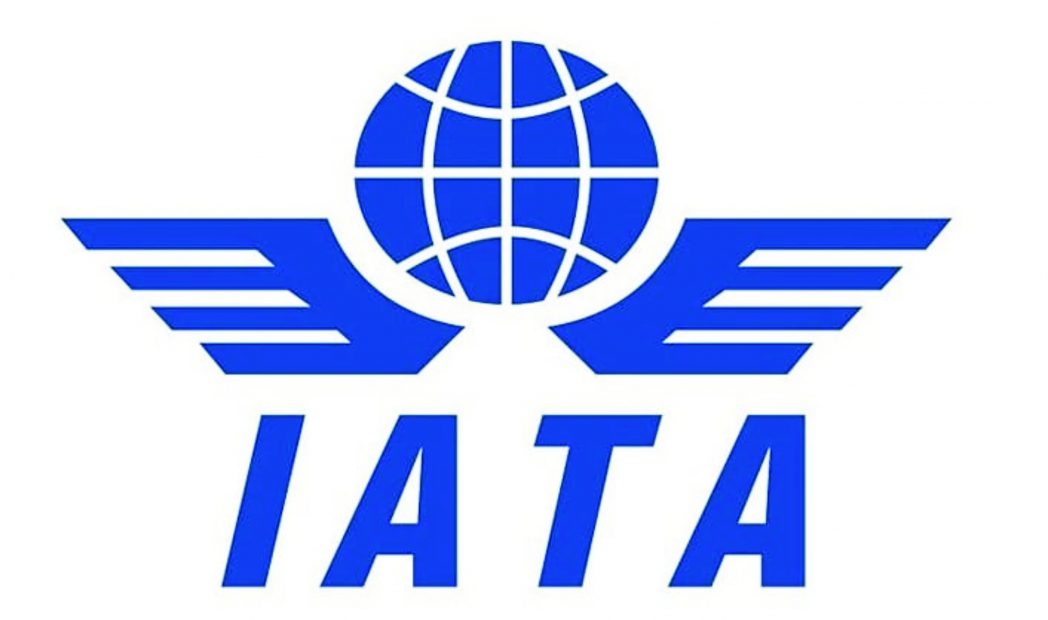Business
Airlines May Post $39bn Loss In Q2 – IATA

The International Air Transport Association says airlines may burn through $61bn of their cash reserves during the second quarter ending 30 June, 2020 while posting a quarterly net loss of $39bn.
The association said on Tuesday that the new analysis was based on the impact assessment it released last week, under a scenario in which severe travel restrictions last for three months.
According to IATA, in this scenario, full-year demand falls by 38 per cent and full-year passenger revenues drop by $252bn compared to 2019 while the fall in demand will be the deepest in the second quarter, with a 71 per cent drop.
IATA said the impact would be severe as revenues were expected to fall by 68 per cent.
“This is less than the expected 71 per cent fall in demand due to the continuation of cargo operations, albeit at reduced levels of activity. Variable costs are expected to drop sharply—by some 70 per cent in the second quarter—largely in line with the reduction of an expected 65 per cent cut in second quarter capacity. The price of jet fuel has also fallen sharply, although we estimate that fuel hedging will limit the benefit to a 31 per cent decline,” the association said.
“Fixed and semi-fixed costs amount to nearly a half an airline’s cost. We expect semi-fixed costs (including crew costs) to be reduced by a third. Airlines are cutting what they can, while trying to preserve their workforce and businesses for the future recovery. These changes to revenues and costs result in an estimated net loss of $39bn in the second quarter,” it added.
The association explained that on top of unavoidable costs, airlines were faced with refunding sold but unused tickets as a result of massive cancellations resulting from government-imposed restrictions on travel.
It noted that the second quarter liability for these would be a colossal $35bn.
“Cash burn will be severe. We estimate airlines could be burning through $61bn of their cash balances in the second quarter,” the association said.
The Director General, IATA, Alexander de Juniac, said airlines could not cut costs fast enough to stay ahead of the impact of the crisis.
“We are looking at a devastating net loss of $39bn in the second quarter. The impact of that on cash burn will be amplified by a $35bn liability for potential ticket refunds. Without relief, the industry’s cash position could deteriorate by $61bn in the second quarter,” he said.
According to him, several governments are responding positively to the industry’s need for relief measures, adding that among countries providing specific financial or regulatory aid packages to the industry are Colombia, the United States, Singapore, Australia, China, New Zealand and Norway.
He said Brazil, Canada, Colombia and the Netherlands had also recently relaxed regulations to allow airlines to offer passengers travel vouchers in place of refunds.
Business
NCDMB Recommits To Youths’ Capacity Building

The Executive Secretary, Nigerian Content Development and Monitoring Board (NCDMB), Engr. Felix Omatsola-Ogbe, has reeled out initiatives evolved by the Board in its contribution towards capacity building for youths across the country.
The NCDMB Scribe revealed this recently at the 2024 Practical Nigerian Content (PNC) Youth Forum held in Yenagoa, the Bayelsa State capital.
Tagged “empowering the future: unlocking the opportunities in the Niger Delta oil and gas sector”, the event featured three thematic lecture series delivered by the founder and leader of the Niger Delta Peace Coalition (NDPC), Mr. Zik Gbemre, the Bayelsa State Commissioner for Youths Development, Mr. Alfred Kemepado Nimizigha, and the Chief Executive Officer, PE Energy ltd., Mr Daere Akabo.
Ogbe, who was represented by the Manager, Capacity Building of the Board, Mr. Olugbenga Sheba, noted that the NCDMB has recently partnered the Nigerian Liquified Natural Gas (NLNG) to commence the Nigerian Content Human Capacity Development (NC-HCD) in the oil and gas sector for the training of 331 young graduates.
“As you already know, the NCDMB was established by the Nigerian Oil and Gas Industry Content Development (NOGICD) Act of 2010.
“Our mandate is to develop human capabilities and material capacities in the Nigerian oil and gas industry, and to monitor and enforce compliance with the provisions of the act”, the NCDMB Scribe said.
“The theme for this year’s youth event is ‘Empowering the future: Unlocking the opportunities in the Niger Delta Oil and Gas Sector’. This theme speaks to our determination and ongoing efforts to introduce youths from the Niger Delta to opportunities that abound in the oil and gas industry.
“Few weeks ago, we partnered the NLNG to kick start the Nigerian Content Human Capacity Development (NC-HCD) basic training programme for a total of 331 young graduates. The training covers ICT, Engineering, Welding and Fabrication, Non-destructive Testing (NDT), Lifting and working at Height, Quality Management Systems, Marine and offshore services and Facility Management and Maintenance.
“We also organised training for youths with the Industrial Training Fund (ITF), WalterSmith Petroleum, and other organizations. And as part of the NCDMB’s initiatives in the Niger Delta, we’ve developed two oil and gas parks at Emeyal one in Ogbia Local Government Area of Bayelsa State, and Odukpani in Cross River State”, he added.
By: Ariwera Ibibo-Howells, Yenagoa
Business
FGC, Warri Wins NCDMB, ICPC Maiden Anti-Corruption Schools Debate

The Federal Government College, Warri, Delta State, has won the maiden ‘’Anti-Corruption” debate organised for select Secondary Schools across the six geopolitical zones of the nation by the Nigerian Content Development and Monitoring Board (NCDMB), in partnership with the Independent Corrupt Practices and other related offences Commission (ICPC) at the Content Tower, headquarters of the Board, Yenagoa, Bayelsa State.
The Tide reports that at the debate umpires said following the evaluation from the presentations by the two finalists, Federal Government College, Kazaure, Jigawa State, scored a total of 74.4 points as first runner-up while the Federal Government College, Delta State garnered 76.4 points to emerge winners.
Other schools that participated in the various stages of the debate leading to the finals were Federal Government College, Odi, Bayelsa State; Federal Government College, Okigwe, Imo State; Federal Government College, Ijanikin, Lagos State; Federal Government College, Maiduguri, Borno State; and Federal Government College, Rubochi, Abuja.
The Tide further reports that the theme for the 2024 International Day of Anti-Corruption was, “Effective Whistleblower Protection Mechanism: A Critical Tool in the Fight Against Corruption”, while topic for the debate was, “Impact of integrity on the expansion of public trust and confidence in governance.
Earlier in his keynote address, the Executive Secretary, NCDMB, Engr. Felix Omatsola Ogbe, restated the Board’s stance against corruption, noting that fighting corruption is a must for the Board.
He reaffirmed his commitment to ideas and programmes geared towards putting an end to corruption within the system, and lauded the Federal Ministry of Education for approving the participation of students in the event.
While commending the ICPC for their support and continuous oversight over the activities of the Anti-Corruption Unit (ACTU) of NCDMB, Ogbe also thanked the anti-graft unit of the Board for putting the event together, noting that they were doing well in their efforts at combating corruption.
“To be clear on what today is about, we’re marking and celebrating International Anti-Corruption Day (IACD), with focus on raising the consciousness of our youths on the ills of corruption and how it stunts the socio-economic development of any Nation.
“This is to send a strong message for extra vigilance by all of us in combating the menace of Corruption from all fronts”, the NCDMB boss said.
By: Ariwera Ibibo-Howells, Yenagoa
Business
Free Meter Distribution: FG Deducts N700bn From Federation Account

The Federal Government has earmarked N700billion from the federation account to implement the distribution of free electricity meters under the Presidential Metering Initiative.
This was disclosdd by the Special Adviser to the Minister of Power on Strategic Communications and Media, Bolaji Tunji.
Tunji, who, in a chat with The Tide’s source noted that the PMI was on course with a target to deliver two million meters yearly, also revealed that the amount reserved for the project had reached N700 billion and procurement had started.
“The Presidential Metering Initiative is still on course. Two million meters every year, delivery of the first batch will start by the first quarter of next year. About N700billion provision has been made, and the money is ready”, he said.
He further revealed that the government would fulfil its promise to deliver 1.3million electricity meters out of the 3.2 million meters under the World Bank Distribution Sector Reform Programme initiative this month, saying that “The DISREP programme will commence this month”.
An analysis of the Federal Account Allocation Committee meeting minutes obtained by our correspondent between April and August showed that the government had saved N420billion from a monthly deduction of N100billion.
The amount deducted from the monthly federation revenue before allocation to the three tiers of government was aimed at bridging the metering gap in the country, which currently stands at 50 per cent.
Recall that N120 billion was deducted from April revenue as the first tranche for the PMI, bringing the amount deducted from the federation account for the initiative as of August to N420billion.
In May, the Minister of Power, Adebayo Adelabu, said the government would provide an initial N75billion as seed capital while the Nigerian Sovereign Investment Authority pledged to inject N250 billion annually for the initiative.
The Minister also disclosed that the initiative would leverage debt financing from diverse financial institutions to bolster the PMI’s resources.
The Managing Director of Abuja Distribution Electricity Distribution Company, Mr. Victor Ojelabi, recently said the PMI would unlock about N1trillion in revenue currently tied up in the Nigerian Electricity Supply Industry due to a large number of unmetered customers.
Under the initiative, the Nigerian Electricity Regulatory Commission announced the approval of N21billion for the 11 electricity Distribution Companies to provide meters for end-use customers at zero cost.
The Distribution Sector Recovery Programme is a comprehensive initiative aimed at addressing the challenges and inefficiencies within Nigeria’s electricity distribution sector.
Recently, the NERC acknowledged that the country’s metering gap remains substantial despite installing 3.03million meters since privatising the power sector in 2013.
It said 6.15 million out of 13.33 million registered customers had been metered, bringing the metering rate to 46.14 per cent in 2024.
-

 Oil & Energy4 days ago
Oil & Energy4 days agoNNPC Begins Export From PH Refinery
-
News4 days ago
New Oneh Eta Akpajo Emerges
-

 Sports4 days ago
Sports4 days agoLa Liga: Barca Stumble Again
-

 Maritime4 days ago
Maritime4 days agoCoastal Guard Bill’ll Unlock Marine Blue Economy Potential -FG
-

 City Crime4 days ago
City Crime4 days agoWe Execute, Deliver Strategic Projects To Improve People’s Lives
-

 Oil & Energy4 days ago
Oil & Energy4 days ago‘Indigenous Companies To Gain From Shell’s Contract Awards’
-
Rivers4 days ago
RSG Renews Commitment To Eradicating Open Defecation
-

 Sports4 days ago
Sports4 days agoBayern Extend Bundesliga Lead To Six Points

